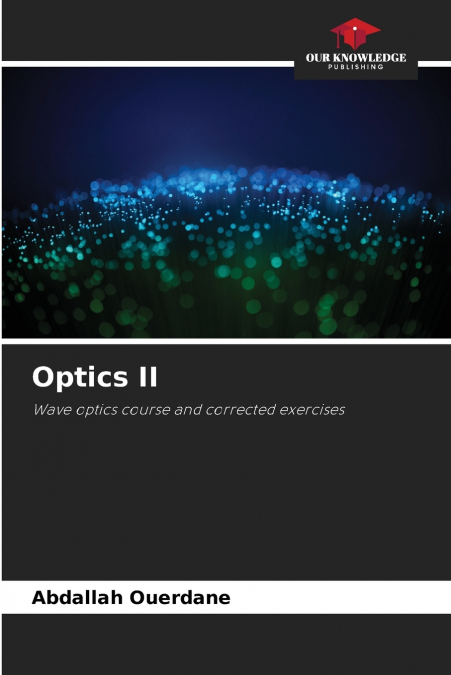
 Librería Perelló (Valencia)
Librería Perelló (Valencia)
 Librería Aciertas (Toledo)
Librería Aciertas (Toledo)
 El AlmaZen del Alquimista (Sevilla)
El AlmaZen del Alquimista (Sevilla)
 Librería Elías (Asturias)
Librería Elías (Asturias)
 Librería Kolima (Madrid)
Librería Kolima (Madrid)
 Donde los libros
Donde los libros
 Librería Proteo (Málaga)
Librería Proteo (Málaga)
The light can be considered as the physical agent essential to the vision. It is an electromagnetic wave with a double aspect: It is an electromagnetic field that varies in space and time, the light is therefore part of electromagnetic waves. This is its wave aspect. It is also a flow of particles or photons which gives light the corpuscular aspect. Unlike the geometric optics treated in optics I, optics II describes the phenomena of interference and diffraction that occur when the sources are coherent with each other:. The phenomenon of light polarization is the process of converting unpolarized light into polarized light. The light in which the particles vibrate in a direction or in a preferred geometric form is called polarized light. The Fresnel coefficients, express the relationship between the amplitudes of reflected and transmitted waves in relation to the amplitude of the incident wave. They evaluate the optical behavior of optical multilayers, from the simplest of them, the blade with parallel face, to the most complex.